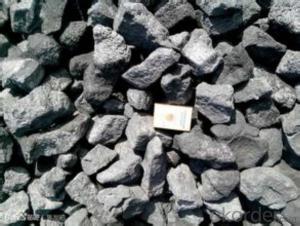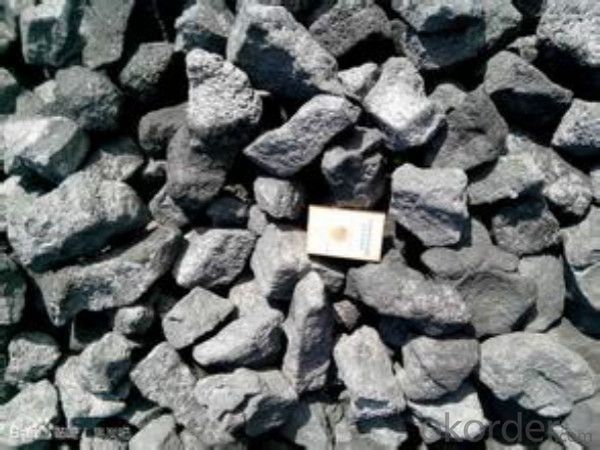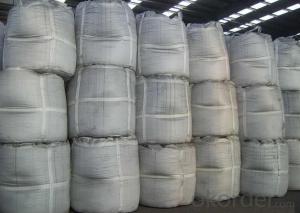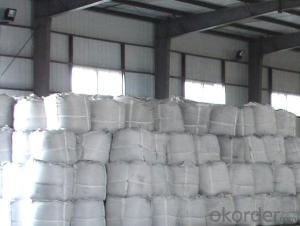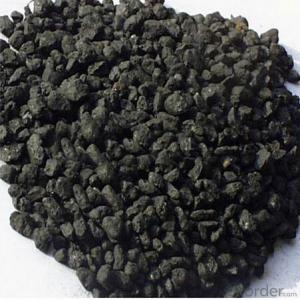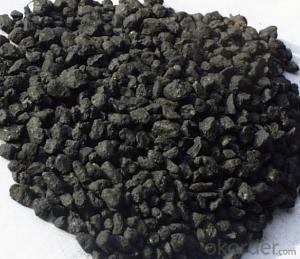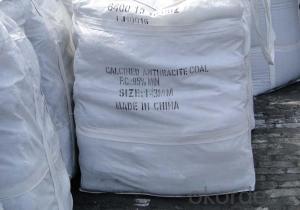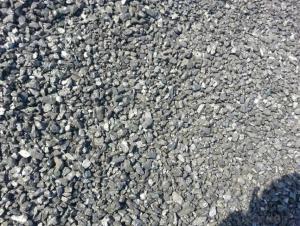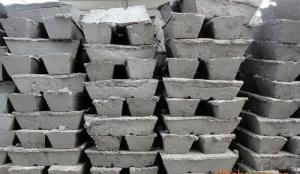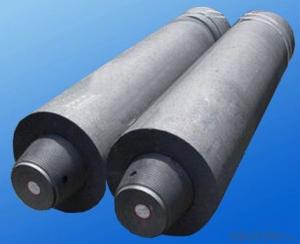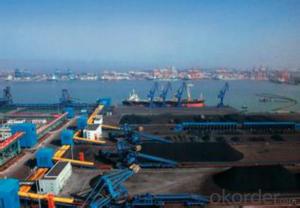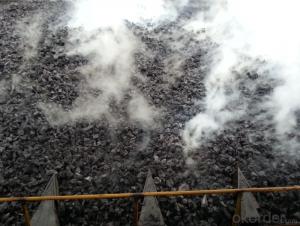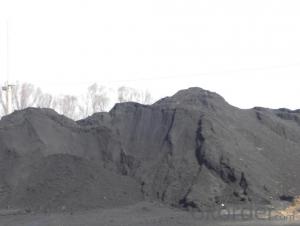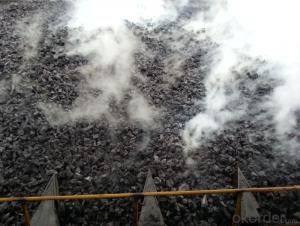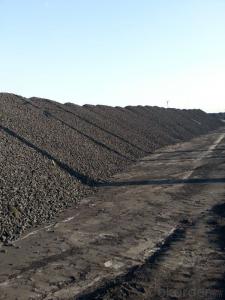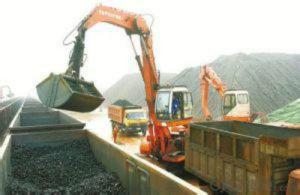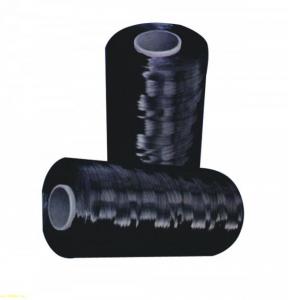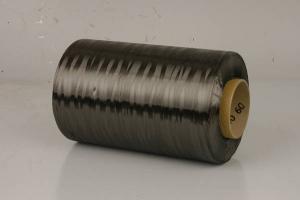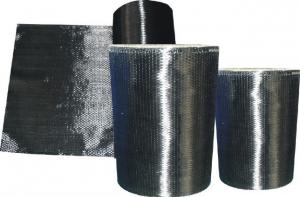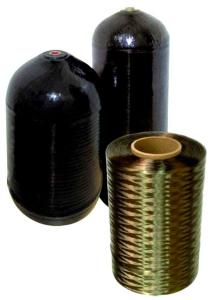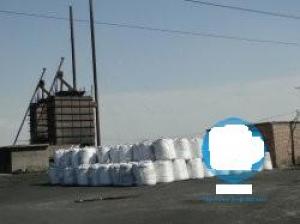10-15mm Low Sulfur Met Coke Made in China
- Loading Port:
- Tianjin
- Payment Terms:
- TT OR LC
- Min Order Qty:
- 100 m.t.
- Supply Capability:
- 20000 m.t./month
OKorder Service Pledge
OKorder Financial Service
You Might Also Like
Product Description
Met Coke(metallurgical coke) is a carbon material resulting from the manufactured purification of multifarious blends of bituminous coal. In its natural form, bituminous coal is soft; its medium-grade composite contains a high occurrence of unstable components. The majority of the unstable components are either reclaimed or recycled.
The coke handled by our corporation is made from superior coking coal of Shanxi province. Provided with the advantage of low ash, low sulphur and high carbon. Our coke is well sold in European,American, Japanese and South-east Asian markets. Our owned Coke plant are located in Shanxi Province and supplying of you many kinds of coke.
Features
It is widely used in casting and metallurgy Smelting every tons Irons need about 0.4 to 0.6ton coke. As the reducing agent in the steel-making and foundry industry.
Specification
Item No. | Ash (%) max | S (%) max | F.C. (%) min | V.M (%) max | Moisture (%) max | P (%) max | CSR (%) min | CRI (%) max | Cal.Value (≥Kcal/Kg) |
NF-M001 | 9 | 0.6 | 89.5 | 1.2 | 5 | 0.035 | 65 | 25 | 7250 |
NF-M002 | 10.5 | 0.6 | 88 | 1.2 | 5 | 0.035 | 65 | 25 | 7100 |
NF-M003 | 12 | 0.6 | 86.5 | 1.5 | 5 | 0.035 | 63 | 28 | 6900 |
NF-M004 | 13 | 0.6 | 85.5 | 1.5 | 5 | 0.035 | 60 | 30 | 6800 |
Pictures
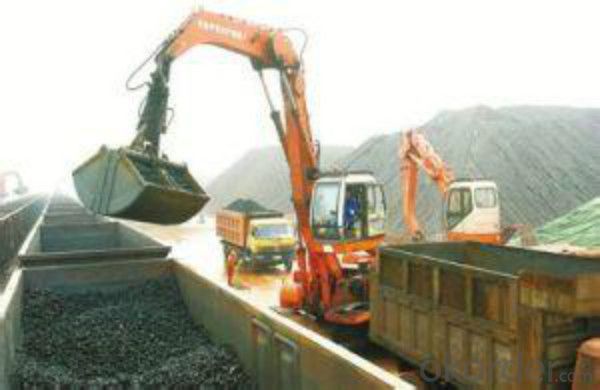
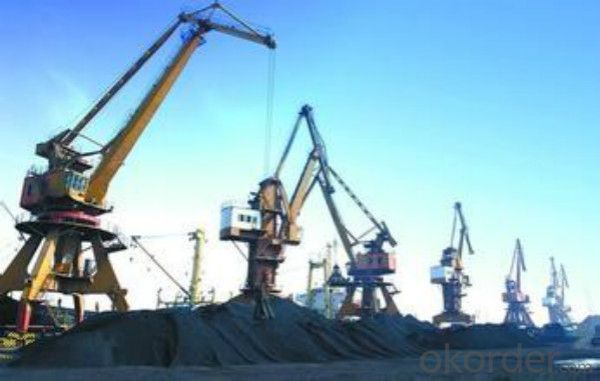
FAQ
1 What is the packing?
Packaging Details: | 1. jumbo ton bag |
2 Delivery time? Delivery Detail: |
15 days after we get the advanced payment or original L/C |
- Q: How does carbon contribute to the strength of concrete?
- There are several ways in which carbon can contribute to the strength of concrete. One primary method involves the utilization of carbon nanotubes (CNTs) or carbon fibers. These substances are added to the concrete mixture to act as reinforcement and enhance its mechanical properties. Incorporating CNTs or carbon fibers into the concrete results in the formation of a network consisting of small, sturdy, and lightweight particles. This network serves to enhance the overall strength and durability of the concrete, making it more resistant to cracking, flexing, and other types of structural damage. Furthermore, the carbon particles also improve the bonding between the cement paste and the aggregates in the concrete. This improved bonding increases the strength at the interface, resulting in a more cohesive and robust concrete matrix. Moreover, carbon can also contribute to the strength of concrete by acting as a pozzolan. Pozzolans are materials that undergo a chemical reaction with calcium hydroxide, a byproduct of cement hydration, to form additional cementitious compounds. These compounds fill in the gaps between cement particles, leading to a denser and stronger concrete structure. Carbon black, which is a finely divided form of carbon, is commonly used as a pozzolan in concrete mixtures. Overall, the incorporation of carbon in concrete, whether through carbon nanotubes, carbon fibers, or as a pozzolan, can significantly enhance its strength and performance. By reinforcing the concrete matrix, improving bonding, and filling in gaps, carbon helps create a more durable and robust material suitable for various construction applications.
- Q: What are carbon isotopes and how are they used in scientific research?
- Carbon isotopes are different forms of carbon that have varying numbers of neutrons in their atomic nuclei. The three most common carbon isotopes are carbon-12, carbon-13, and carbon-14. Carbon isotopes are used in scientific research for various purposes. Carbon-14, for example, is used in radiocarbon dating to determine the age of organic materials, such as fossils or artifacts. Carbon-13 is used in stable isotope analysis to study carbon cycling in ecosystems and understand food webs. By analyzing the ratios of different carbon isotopes, scientists can gain valuable insights into the processes and dynamics of natural systems.
- Q: How is carbon used in the production of paints and pigments?
- Carbon is used in the production of paints and pigments primarily as a black pigment. Carbon black, which is derived from the incomplete combustion of hydrocarbons, is mixed with binders to create black paints and pigments. It provides excellent opacity, color retention, and UV resistance, making it a popular choice in various applications, including automotive coatings, printing inks, and architectural paints.
- Q: What are the consequences of increased carbon emissions on social inequality?
- Increased carbon emissions have significant consequences on social inequality. Firstly, the impacts of climate change, driven by carbon emissions, disproportionately affect marginalized communities who often lack the resources and infrastructure to adapt or recover from extreme weather events, such as floods, droughts, and storms. This exacerbates existing inequalities and widens the gap between the rich and the poor. Secondly, the burning of fossil fuels, a major contributor to carbon emissions, disproportionately affects low-income communities who are more likely to live near industrial areas or power plants. This exposure to air pollution leads to higher rates of respiratory diseases and other health issues, further deepening social inequality as access to quality healthcare is often limited for these communities. Moreover, the consequences of climate change, such as agricultural disruptions, water scarcity, and increased food prices, can lead to social unrest, migration, and conflicts, disproportionately impacting vulnerable populations. This creates a ripple effect on social and economic stability, further marginalizing already disadvantaged groups. Addressing carbon emissions and mitigating climate change is crucial for reducing social inequality. Transitioning to renewable energy sources, investing in sustainable infrastructure, and implementing policies that prioritize the needs of marginalized communities can help alleviate the burden on those most affected and promote a more equitable society.
- Q: How does carbon dioxide affect climate change?
- Climate change is significantly influenced by carbon dioxide (CO2), a greenhouse gas. CO2 is released into the atmosphere through natural processes like volcanic eruptions or human activities such as burning fossil fuels. Its presence in the atmosphere traps heat from the sun, preventing it from escaping back into space. This phenomenon is known as the greenhouse effect. Human activities, particularly the burning of fossil fuels like coal, oil, and natural gas, have led to an imbalance in the natural carbon cycle. This has caused an increase in CO2 concentration in the atmosphere, resulting in a rapid rise in global CO2 levels. Consequently, the Earth's surface is warming, and climate patterns are changing. Since the Industrial Revolution, the burning of fossil fuels has significantly elevated atmospheric CO2 levels, leading to an increase in the Earth's average temperature. This temperature rise impacts various aspects of the climate system, causing a range of effects. One of the most visible outcomes of increased CO2 levels is global warming. This warming leads to the melting of glaciers and polar ice, which in turn raises sea levels. Rising sea levels pose a threat to coastal areas and low-lying islands, causing increased flooding, coastal erosion, and potential displacement of communities. Moreover, elevated CO2 levels contribute to more frequent and intense heatwaves, droughts, and wildfires in many regions. These extreme weather events negatively affect agriculture, water availability, and human health. Carbon dioxide also disrupts ecosystems by altering the growth patterns and distribution of plant and animal species. Changes in temperature and precipitation patterns, driven by increased CO2 levels, disturb the delicate balance of life, leading to biodiversity loss and potential species extinction. To mitigate the impacts of CO2 on climate change, it is crucial to reduce greenhouse gas emissions. Transitioning to renewable energy sources, improving energy efficiency, and adopting sustainable practices are important steps in reducing CO2 emissions and limiting the extent of climate change. Additionally, efforts to restore and protect forests and other natural carbon sinks can help absorb and store CO2, thus mitigating its effects on the climate.
- Q: How does carbon impact the stability of savannah ecosystems?
- The stability of savannah ecosystems relies heavily on carbon, which is crucial for all living organisms and involved in various ecological processes. Carbon exists primarily in the form of organic matter, which is vital for the growth and development of plants, the primary producers in these ecosystems. In savannahs, carbon affects stability in multiple ways. Firstly, carbon dioxide (CO2) plays a significant role in regulating the global climate as a key component of the Earth's atmosphere. Savannahs have the ability to sequester and store large amounts of carbon in their vegetation and soils, thereby mitigating climate change by reducing CO2 levels in the atmosphere. Carbon is also essential for plant growth through photosynthesis. Savannah plants, like grasses and scattered trees, utilize carbon dioxide from the air to produce carbohydrates and other organic compounds. This process not only provides plants with energy but also contributes to the overall productivity of the ecosystem. The stability of savannah ecosystems is also dependent on the interaction between plants and animals. Carbon-rich vegetation serves as a food source for herbivores, which in turn support predators. The carbon cycle ensures a continuous flow of energy and nutrients throughout the food web, maintaining ecosystem balance and stability. Moreover, the carbon content in savannah soils affects their fertility and ability to retain moisture. Organic matter derived from decaying plant material improves soil structure, nutrient availability, and water holding capacity. This, in turn, supports vegetation growth and sustains the diverse array of species found in savannah ecosystems. However, human activities such as deforestation, agricultural practices, and the burning of fossil fuels are disrupting the carbon balance in savannahs. Deforestation removes carbon-rich trees and plants, reducing the overall carbon storage capacity of the ecosystem. Additionally, the release of carbon dioxide from burning fossil fuels contributes to the greenhouse effect and climate change, which can disrupt savannah ecosystem stability. In conclusion, carbon plays a critical role in maintaining the stability of savannah ecosystems. It influences climate regulation, supports plant growth, provides energy for the food web, and enhances soil fertility. However, human activities that disrupt the carbon balance in these ecosystems can have detrimental effects on their stability and overall health. Therefore, it is essential to conserve and restore savannah ecosystems to preserve their carbon storage capacity and ensure long-term stability.
- Q: How is carbon used in the production of textiles?
- Carbon is used in the production of textiles through various processes. For instance, carbon black, a form of carbon, is commonly used as a coloring agent in textile dyes, giving fabrics a wide range of colors. Additionally, carbon fiber, a lightweight and strong material derived from carbon, is used to create high-performance textiles for applications like aerospace, sports equipment, and automotive industries. Carbon-based chemicals are also used in textile manufacturing processes such as dyeing, finishing, and printing.
- Q: How is carbon used in the production of nanoelectronics?
- The production of nanoelectronics involves the diverse utilization of carbon. One of the most notable applications is seen in the creation of carbon nanotubes (CNTs), which are cylindrical structures composed solely of carbon atoms. These nanotubes possess exceptional electrical and mechanical properties that render them highly suitable for incorporation into nanoelectronic devices. CNTs can serve as transistors, which serve as the fundamental building blocks of electronic circuits. Due to their diminutive size and outstanding electrical conductivity, CNT transistors have the capacity to generate high-performance, low-power devices. Consequently, they hold the potential to supplant conventional silicon transistors, thus enabling the development of more sophisticated and compact electronic devices. In addition, carbon plays a pivotal role in the production of graphene, a single layer of carbon atoms arranged in a two-dimensional honeycomb lattice. Graphene exhibits extraordinary electrical conductivity, thermal conductivity, and mechanical strength. Consequently, it can function as a conductive material in nanoelectronics, thereby facilitating the creation of swifter and more efficient electronic devices. Moreover, carbon-based materials can be employed in nanoelectronics for energy storage purposes. For example, carbon nanotubes and graphene can be harnessed in supercapacitors, energy storage devices that possess the ability to rapidly store and discharge substantial amounts of electrical energy. These carbon-based energy storage systems hold the potential to revolutionize the realm of portable electronics and electric vehicles. In conclusion, the extensive utilization of carbon in the production of nanoelectronics can be observed. Its distinctive properties, including heightened electrical conductivity, mechanical strength, and thermal conductivity, render it an ideal material for the advancement of high-performance electronic devices. Carbon nanotubes, graphene, and other carbon-based materials serve as crucial components in the fabrication of nanoelectronic devices, thereby enabling progress in computing power, energy storage, and the miniaturization of electronic components.
- Q: What are the impacts of carbon emissions on the stability of tundra ecosystems?
- The impacts of carbon emissions on the stability of tundra ecosystems are significant and wide-ranging. Carbon emissions, primarily in the form of greenhouse gases such as carbon dioxide and methane, contribute to global warming and climate change. As a result, the tundra ecosystems, which are particularly vulnerable to temperature changes, experience several negative effects. Firstly, increased carbon emissions lead to rising temperatures, causing the permafrost in the tundra to thaw. Permafrost is a layer of permanently frozen soil that acts as a foundation for the tundra ecosystem. When it thaws, the stability of the entire ecosystem is compromised. The ground becomes unstable, leading to collapsing landscapes, landslides, and altered drainage patterns. This can disrupt plant and animal habitats, as well as impact the distribution of water resources. Secondly, as permafrost thaws, organic matter that has been frozen for thousands of years starts to decompose. This decomposition process releases large amounts of carbon dioxide and methane into the atmosphere, further exacerbating the greenhouse effect. This positive feedback loop accelerates climate change and contributes to the overall increase in carbon emissions. Furthermore, the thawing of permafrost also affects the vegetation in tundra ecosystems. Many plant species in the tundra rely on the permafrost layer for stability and nutrient availability. With its degradation, plants face difficulties in establishing and maintaining their root systems. This, in turn, reduces plant productivity and alters the composition of plant communities. Changes in vegetation can impact wildlife, such as reindeer, caribou, and migratory birds, which depend on specific plant species for food and shelter. Additionally, the increased thawing of permafrost releases previously trapped pollutants and contaminants, which can further harm the stability of tundra ecosystems. These pollutants, such as heavy metals and toxic chemicals, can enter waterways and affect aquatic life, disrupting the delicate balance of the ecosystem. Overall, carbon emissions contribute to the destabilization of tundra ecosystems through the thawing of permafrost, alteration of vegetation, release of greenhouse gases, and contamination of water resources. These impacts not only affect the tundra's unique biodiversity but also have implications for global climate change. It is crucial to reduce carbon emissions and mitigate the effects of climate change to preserve the stability and integrity of these fragile ecosystems.
- Q: What is carbon nanophotonics?
- The study and manipulation of light at the nanoscale using carbon-based materials is known as carbon nanophotonics. This branch of science and technology integrates carbon nanotubes, graphene, and diamond nanoparticles with photonics to develop new optical devices and systems. Carbon-based nanomaterials possess exceptional electrical conductivity, high mechanical strength, and excellent optical properties, making them ideal for nanophotonics applications. These materials can confine and manipulate light at the nanoscale, enabling the miniaturization of optical components and enhancing light-matter interactions. Carbon nanophotonics has vast potential across various fields. Telecommunications, for instance, can benefit from high-speed and compact photonic devices developed using carbon nanomaterials for efficient data transmission. In the field of sensing, highly sensitive and selective sensors can be developed using carbon nanophotonics to detect different molecules and substances. Furthermore, carbon nanomaterials can enhance the efficiency of solar cells and other photovoltaic devices, contributing to advancements in energy harvesting. In summary, carbon nanophotonics is a rapidly evolving field that combines carbon-based nanomaterials with photonics to create innovative optical technologies. By harnessing the power of light at the nanoscale, this field has the potential to revolutionize industries and drive advancements in science and technology.
Send your message to us
10-15mm Low Sulfur Met Coke Made in China
- Loading Port:
- Tianjin
- Payment Terms:
- TT OR LC
- Min Order Qty:
- 100 m.t.
- Supply Capability:
- 20000 m.t./month
OKorder Service Pledge
OKorder Financial Service
Similar products
Hot products
Hot Searches
Related keywords
